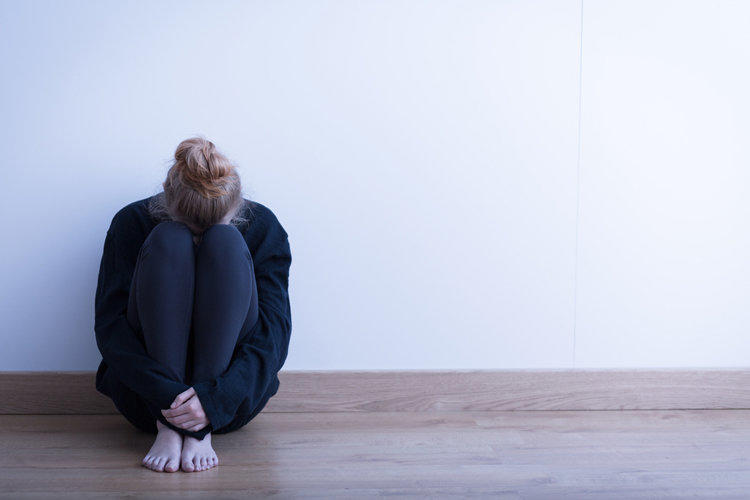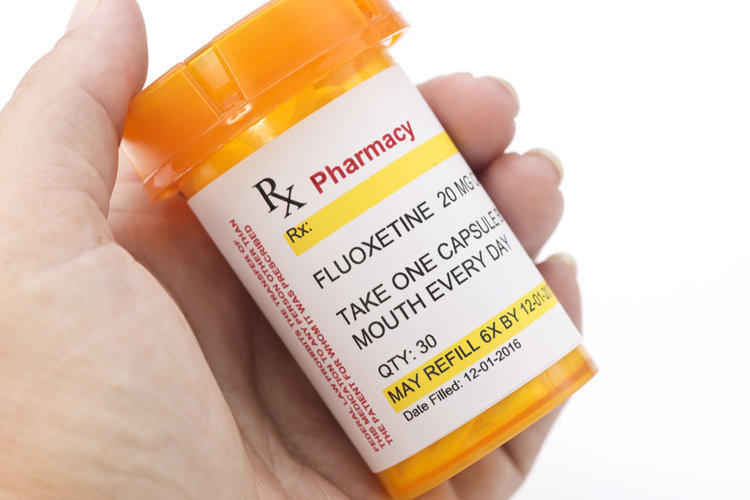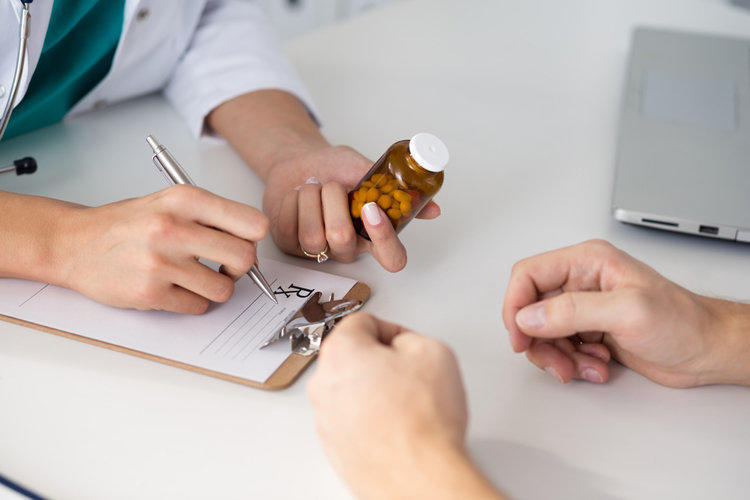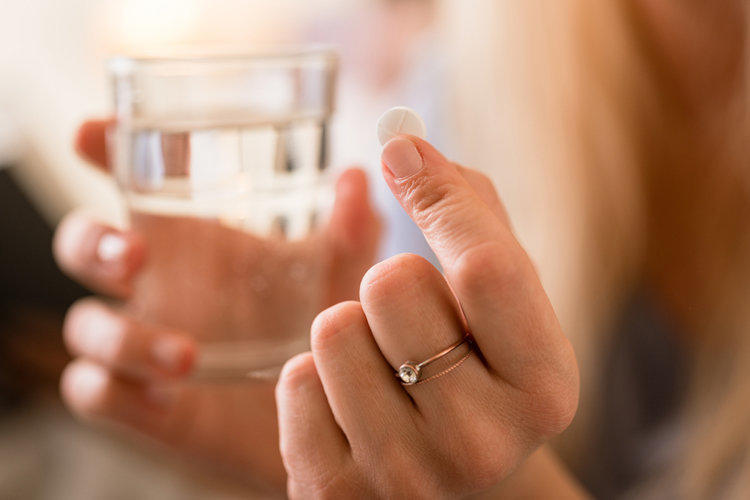- What is depression, and how is it dangerous
- Classification of antidepressants according to the principle of action on the body
- Classification of antidepressants according to the principle of biochemical action
- Tricyclic antidepressants (TCAs)
- Amitriptyline
- Monoamine oxidase inhibitors (MAO inhibitors)
- Moclobemide
- Selective Serotonin Reuptake Inhibitors (SSRIs)
- Fluoxetine
- Other types of drugs
- Bupropion (Zyban)
- Antidepressants of a new generation
- The difference between antidepressants and tranquilizers
- Can I buy antidepressants without a prescription?
- Afobazole
- How dangerous is self-treatment for depression
- How to get a prescription for a drug?
- Herbal Medicines for Depression
- Negrustin
- List of popular drugs alphabetically
Recently, the need for antidepressants has drastically increased. More people suffer from depression largely due to the frantic rhythm of modern life, the increased level of stress. Economic and social problems are also added to this. All this can not affect the mental and mental health of people.
People feel changes in the psyche, when they affect their performance and social relationships. They go to a doctor for advice, and often he diagnoses them with depression.
What is depression, and how is it dangerous
First of all, it should be noted that you should not be afraid of this diagnosis. The disease does not indicate that the one diagnosed with it is some kind of mentally defective. It does not affect the cognitive functions of the brain, and in most cases it can be cured.
However, depression is not just a bad mood or sadness that can roll on from time to time and to healthy people. When depressed, a person loses all interest in life, feels overwhelmed and tired all the time, cannot make a single decision.
Depression is dangerous because it can affect the entire body, causing irreversible changes in its individual organs. In addition, during depression, relationships with others are spoiled, work becomes impossible, suicidal thoughts appear, which can sometimes be carried out.
Depression is not really the result of a person’s weak will, his insufficient efforts to correct the situation. In most cases, it is a biochemical disease caused by a metabolic disorder and a decrease in the amount of certain hormones in the brain, primarily serotonin, norepinephrine and endorphin, which act as neurotransmitters.
Therefore, in general, it is not possible to cure deoression by non-drug means. It is well known that in a depressed mood, a person can be helped by a change of environment, methods of relaxation and auto-training, etc. but all these methods require considerable effort on the part of the patient, his will, desire and energy. And with depression they are just the same and no. It turns out a vicious circle. And to break it without the help of drugs that alter the biochemical processes in the brain, it is often impossible.
Classification of antidepressants according to the principle of action on the body
There are several options for classifying antidepressants. One of them is based on what kind of clinical effects drugs have on the nervous system. In total, there are three types of such actions:
- Sedative
- Balanced
- Activating
Sedative antidepressants have a calming effect on the psyche, relieving anxiety and increasing the activity of the nervous processes. Activating drugs are well struggling with such manifestations of depression as apathy and lethargy. Balanced drugs have a universal effect. As a rule, the sedative or stimulating effect of drugs begins to be felt from the very beginning of the intake.

Classification of antidepressants according to the principle of biochemical action
This classification is considered traditional. It is based on what chemicals are included in the drug, and how they affect biochemical processes in the nervous system.
Tricyclic antidepressants (TCAs)
A large and diverse in composition group of drugs. TCAs have long been used in the treatment of depression and have a solid evidence base. The efficacy of some drugs of the group allows to consider them as a standard for antidepressants.
Tricyclic drugs can increase the activity of neurotransmitters – norepinephrine and serotonin, thereby reducing the causes of depression. The name of the group was given by biochemists. It is associated with the appearance of the molecules of substances of this group, consisting of three joined carbon rings.
TCAs are effective drugs, but they have quite a few side effects. They are observed in approximately 30% of patients.
The main group drugs are:
- Amitriptyline
- Imipramine
- Maprotiline
- Clomipramine
- Mianserin
Monoamine oxidase inhibitors (MAO inhibitors)
These are first-generation antidepressants.
Monoamine oxidase is an enzyme that destroys various hormones, including neurotransmitters. MAO inhibitors prevent this process, so that the number of neurotransmitters in the nervous system increases, which in turn leads to increased mental processes.
MAO inhibitors are quite effective and cheap antidepressants, but have a large number of side effects. These include:
- Hypotension
- Hallucinations
- Nonsense
- Insomnia
- Agitation
- Constipation
- Headache
- Dizziness
- Sexual dysfunction
- Visual impairment
When taking certain medications, you should also follow a special diet to avoid the ingestion of potentially dangerous enzymes that are metabolized by MAO.

Most modern antidepressants of this class have the ability to inhibit only one of two types of enzyme – MAO-A or MAO-B. Such antidepressants have fewer side effects and are called selective inhibitors. Non-selective inhibitors are currently rarely used. Their main advantage is the low price.
Major selective MAO inhibitors:
- Moclobemide
- Pyrindol (pyrazidol)
- Befol
- Metralindol
- Garmalin
- Selegiline
- Razagiline
Selective Serotonin Reuptake Inhibitors (SSRIs)
These drugs belong to the third generation of antidepressants. They are relatively easily tolerated by patients and have fewer contraindications and side effects compared to TCAs and MAO inhibitors. Not so dangerous, and their overdose compared with other groups of drugs. The main indication for treatment with drugs is a major depressive disorder.

The principle of the drugs is based on the fact that the neurotransmitter-serotonin, which is used to transmit impulses between neurons by contacts, does not return back to the cell that transmits the nerve impulse, but is transferred to another cell. Thus, antidepressants such as SSRIs increase the activity of serotonin in the nerve chain, which has a beneficial effect on brain cells affected by depression.
As a rule, the drugs in this group are particularly effective for depressions of severe severity. In depressive disorders of low and medium severity, the effect of drugs is not so noticeable. However, a number of physicians hold a different opinion, which is that in severe forms of depression, it is preferable to use proven TCAs.
The therapeutic effect of an SSRI is not immediately apparent, usually after 2-5 weeks of administration.
This class includes substances such as:
- Fluoxetine
- Paroxetine
- Citalopram
- Sertraline
- Fluvoxamine
- Escitalopram
Other types of drugs
There are also other groups of drugs, for example, noradrenaline reuptake inhibitors, selective norepinephrine reuptake inhibitors, noradrenergic and specific serotonergic drugs, melatonergic antidepressants. Among these drugs can be noted Bupropion (Zyban), Maprotiline, Reboxetine, Mirtazapine, Trazadon, Agomelatine. These are all good antidepressants, proven in practice means.
Antidepressants of a new generation
These are new drugs, which mainly include antidepressants class SSRI. Among the drugs synthesized relatively recently, the drugs showed themselves well:
- Sertraline
- Fluoxetine
- Fluvoxamine
- Mirtazalin
- Escitalopram
The difference between antidepressants and tranquilizers
Many believe that tranquilizers are a good way to fight depression. But in fact, this is not the case, although tranquilizers are often used to treat depression.
What is the difference between these classes of drugs? Antidepressants are drugs that, as a rule, have a stimulating effect, normalize mood and relieve mental problems associated with a lack of certain neurotransmitters. This class of drugs acts for a long time and does not affect people with a healthy nervous system.
Tranquilizers, as a rule, are the means of quick action. They can be used to combat depression, but mostly as ancillary drugs. The essence of their impact on the human psyche is not to correct his emotional background in the long term, as with drugs for depression, but to suppress manifestations of negative emotions. They can be used as a means to reduce fear, anxiety, arousal, panic attacks, etc. Thus, it is more anti-anxiety and sedatives than antidepressants. In addition, during the course of treatment, most tranquilizers, especially drugs of the diazepine series, are addictive and addictive.
Can I buy antidepressants without a prescription?

According to the rules of supply of medicines in force in Russia, a prescription is required to obtain psychotropic drugs in pharmacies, that is, a prescription. And antidepressants are no exception. Therefore, theoretically strong antidepressants without prescriptions can not be bought. In practice, of course, pharmacists may sometimes turn a blind eye to the rules in the pursuit of profit, but this phenomenon cannot be taken for granted. And if you are given medication without a prescription in one pharmacy, this does not mean that the situation will be the same in the other.
You can buy without a doctor’s prescription only drugs for the treatment of mild depressive disorders like Afobazole, “daytime” tranquilizers and herbal preparations. But in most cases, they are difficult to attribute to these antidepressants. It would be better to attribute them to the class of sedative drugs.
How dangerous is self-treatment for depression
There are many factors to consider when treating depression. This is the patient’s state of health, the physiological parameters of his body, the type of the disease, other medications taken by him. Independently analyze all the factors and choose a medicine and its dosage in such a way that it would be useful and not bring harm, not every patient can. Only specialists – psychotherapists and neuropathologists with extensive practical experience will be able to solve this problem and tell which antidepressants are better to use for a particular patient. After all, the same medicine, used by different people, will lead in one case to a complete cure, in the other – it will not have any effect, in the third – it can even aggravate the situation.
Virtually all drugs for depression, even the lightest and safest, can cause side effects. A strong drugs without side effects simply does not exist. Especially dangerous is the long-term uncontrolled use of drugs or overdosing. In this case, intoxication of the organism with serotonin (serotonin syndrome) may occur, which can be fatal.
How to get a prescription for a drug?
If you believe that you have depression, it is recommended to consult a psychotherapist or a neuropathologist. Only he can carefully study your symptoms and prescribe the appropriate drug in your case.
Herbal Medicines for Depression
The most popular herbal preparations for mood elevation today contain extracts of mint, chamomile, valerian, motherwort. But the most effective in depression showed drugs containing St. John’s wort.
The mechanism of the therapeutic action of Hypericum is not yet precisely elucidated, but scientists believe that the hypericin enzyme contained in it is capable of accelerating the synthesis of norepinephrine from dopamine. Also, the St. John’s wort contains other substances that have a beneficial effect on the nervous system and other body systems – flavonoids, tannins, essential oils.

Hypericum preparations are mild antidepressants. They will help not at all with depression, especially at its severe forms. Nevertheless, the effectiveness of Hypericum in mild and moderate depressions has been proven by serious clinical studies in which it proved to be no worse, and in some respects even better than the popular tricyclic drugs for depression and SSRIs. In addition, the Hypericum preparations have a relatively small amount of side effects. They can take children from 12 years. Among the negative effects of the Hypericum medication should be noted the phenomenon of photosensitization, which consists in the fact that when the sun is exposed to the skin during a course of treatment with a drug, rashes and burns may appear on it.
Hypericum based medicines are sold without a prescription. Therefore, if you are looking for remedies for depression that can be taken without a doctor’s prescription, then this class of drugs may be the best choice.
Some drugs based on Hypericum:
- Negrustin
- Deprim
- Hypericum gelarium
- Neuroplant
List of popular drugs alphabetically
| Name | Active ingredient | Type | Special Properties |
| Amitriptyline | TCA | ||
| Agomelatine | melatonergic antidepressant | ||
| Ademetionine | a light atypical antidepressant | hepatoprotector | |
| Adepress | Paroxetine | ||
| Azaphen | Pipofezin | ||
| Azilekt | Razagilin | ||
| Aleval | Sertraline | ||
| Amizole | Amitriptyline | ||
| Anafranil | Clomipramine | ||
| Ascenter | Sertraline | ||
| Aurorix | Moclobemide | ||
| Afobazole | anxiolytic and anti-anxiety drug | can be used for mild depressions, non-prescription | |
| Bethol | reversible selective inhibitor of MAO type A | ||
| Bupropion | atypical antidepressant | used in the treatment of nicotine addiction | |
| Valdoxan | Agomelatine | ||
| Velbutrin | Bupropion | ||
| Venflaxin | selective serotonin and noradrenaline reuptake inhibitor | ||
| Hypericum Herbion | hypericin | ||
| Heptor | Ademetionine | ||
| Hypericin | atypical antidepressant | herbal medicine, OTC | |
| Deprex | Fluoxetine | ||
| Deprefolt | sertraline | ||
| Deprime | hypericin | ||
| Doxepin | TCA | ||
| Zyban | Bupropion | ||
| Zoloft | sertraline | ||
| Ixel | Milnacipran | ||
| Imipramine | TCA | ||
| Calixta | Mirtazapin | ||
| Clomipramine | TCA | ||
| Coaxil | Thianeptin | ||
| Lenuxin | Escitalopram | ||
| Lerivon | Mianserin | ||
| Maprotiline | tetracyclic antidepressant, selective norepinephrine reuptake inhibitor | ||
| Melipramine | Imipramine | ||
| Metralindol | reversible selective inhibitor of MAO type A | ||
| Miansan | Mianserin | ||
| Mianserin | TCA | ||
| Miaser | Mianserin | ||
| Milnacipran | selective serotonin and noradrenaline reuptake inhibitor | ||
| Miracytol | Escitalopram | ||
| Mirtazapin | noradrenergic and specific serotonergic antidepressant | a new generation drug | |
| Moclobemide | selective MAO type A inhibitor | ||
| Negrustin | hypericin | ||
| Neuroplant | hypericin | ||
| Newvelong | Venflaxin | ||
| Paroxetine | SSRI | ||
| Paxil | paroxetine | ||
| Pipofezin | TCA | ||
| Pirazidol | Pirlindol | ||
| Pirlindol | reversible selective inhibitor of MAO type A | ||
| Plizil | paroxetine | ||
| Prodep | fluoxetine | ||
| Prozac | fluoxetine | ||
| Razagilin | selective type B MAO inhibitor | ||
| Reboxetine | selective norepinephrine reuptake inhibitor | ||
| Rexetine | Paroxetine | ||
| Remeron | Mirtazapin | ||
| Selegiline | selective type B MAO inhibitor | ||
| Selectra | Escitalopram | ||
| Serenata | Sertraline | ||
| Serlift | Sertraline | ||
| Sertraline | SSRI | a new generation drug | |
| Siosam | Citalopram | ||
| Stimulant | Sertraline | ||
| Thianeptin | atypical TCA | ||
| Trazadone | antagonist / serotonin reuptake inhibitor | ||
| Trittiko | Trazadone | ||
| Thorin | Sertraline | ||
| Fevarin | Fluvoxamine | ||
| Fluvoxamine | SSRI | a new generation drug | |
| Fluoxetine | SSRI | ||
| Tsipralex | Escitalopram | ||
| Tsipramil | Citalopram | ||
| Cytalon | Citalopram | ||
| Citalopram | SSRI | ||
| Asipi | Escitalopram | ||
| Elycea | Escitalopram | ||
| Escitalopram | SSRI |






